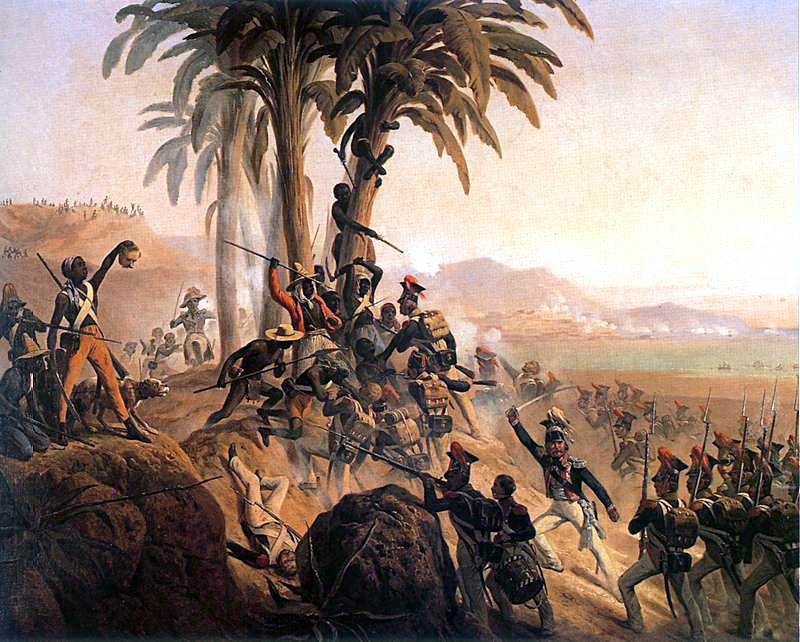Call for Papers - Haiti and the World: Global Effects of Haitian Tremors – 1791, 2010
Special issue of Karib – Nordic Journal for Caribbean Studies (www.karib.no)

The outbreak of the 1791 Haitian revolution shook the imperial powers of Europe and the US. Never before had the enslaved rebelled so powerfully and in the decades to come, the name of the once lucrative colony, Saint-Domingue, provoked anxiety and suspicion. In 2010, Western eyes again turned to Haiti as a devastating earthquake hit the island. Natural forces together with poverty and inadequate infrastructure caused a major humanitarian crisis.
Taking its point of departure in the intersection of politics and aesthetics, this special issue of Karib, an on-line open access research journal published with Stockholm University Press, probes the global responses to and repercussions of these events within the frame of emergent and contemporary modernity.
The special issue proposes to investigate the Haitian revolution as an important event in shaping the structures of a new, global world order and the 2010 earthquake as an telling touchstone for the contemporary state hereof. We ask three interrelated research questions:
· How do nations at the ‘center’ of the global economy act when confronted with disruptions in ‘peripheral’ regions, be they revolutions or earthquakes? The international responses to the two Haitian tremors range from fear to sympathy, from military to humanitarian interventions, and from trade blockades and containment to foreign aid. A better understanding of these responses will help explain the global consequences of the tremors at two ends of modernity.
· How did the two events create or invigorate new relational and cultural networks across the Atlantic, in the Americas, and throughout the global south? The Haitian revolution is a crucial event in both Black Atlantic and Caribbean intellectual cultures and the Haitian diaspora has played a significant role both invigorating and criticizing international intervention and humanitarianism in the wake of the 2010 earthquake.
· How and to what extent do the two events link up? The revolutionary years carry into what Michel Rolph Trouillot has termed the ‘long Haitian revolution’ of the 19th century and the difficult and contested political life of Haiti in the 20th century. A better understanding of the ‘long lines’ uniting and separating the two events will help us understand not only Haitian history as seen from the rest of the world but also the global world order as seen from Haiti.
Within all three fields we encourage discussions that go across disciplines and traditions. We thus welcome contributions that discuss the historical, political and aesthetic representations of the two tremors addressing questions such as:
· How do novels, drama, films, and other media products engage with the two tremors? And how do they influence social imaginaries and participate in the post-catastrophic reconfiguration of the global cultural order?
· How do Haiti and its two tremors feature in political, cultural, and historiographical discourses on both domestic and international affairs throughout the period?
· What are the repercussions of the two tremors within the fields of economy and international politics?
· How do the two tremors influence our understanding of historical change and the subject positions of its agents?
· What kinds of history can we write and see when comparing the Haitian revolution with the 2010 earthquake and what kinds of historical events are possibly overshadowed and neglected by the focus on these particular events?
With its focus on complex global reactions to Haitian disruptions at two ends of modernity, this publication intervenes in the fields of international relations, aesthetics of humanitarianism, diaspora studies, revolutionary studies, and catastrophe studies.
Abstracts of 300 words, including a 5-line biography and contact details, should be sent to the editors Mads Anders Baggesgaard (madsbaggesgaard@cc.au.dk), Jonas Ross Kjærgård (litjrk@cc.au.dk), and/or Christina Kullberg (Christina.Kullberg@moderna.uu.se) no later than November 15, 2017.
Selected contributors will be asked to submit their article in the spring of 2018. The articles may be written in English, Spanish or French and will be peer-reviewed by external readers. Articles should follow the author guidelines that can be found on www.karib.no and should not exceed 8000 words. There are possibilities to publish images, videos and audio within your article.
Kind regards,
Mads Anders Baggesgaard
Jonas Ross Kjærgård ?
Christina Kullberg
